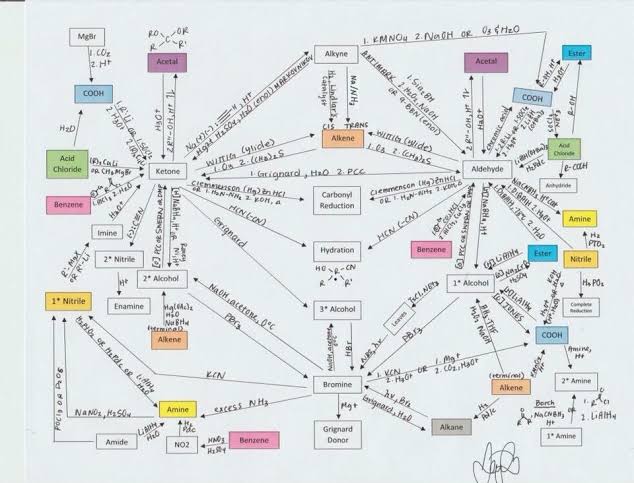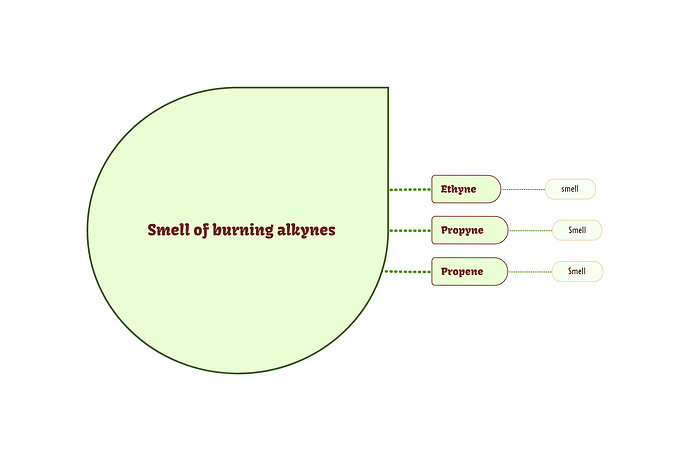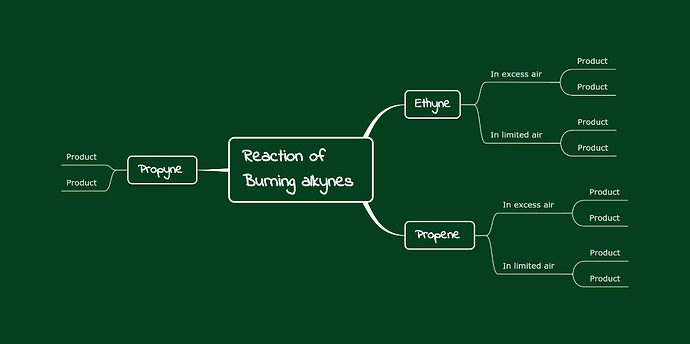What is the best way to learn all the reactions in organic chemistry for IIT JEE?
If possible then connect with IIT JEE toppers, they can guide you in a proper way on what would be the best strategy to learn all the reactions. It will improve your preparation strategy. You can follow the tips for your preparation of organic chemistry:
Study the fundamentals. Make sure you have no doubts about fundamental concepts. That will help you to understand the mechanisms and reactions. You can start your preparation with NCERT books.
Go through Previous years question papers. You will get an idea of which are the more important and what type of questions are asked.
While studying write down the reactions and mechanisms. And revise them again and again. Do not mug them blindly. Try to understand the concepts of how it is happening
Do not be afraid of difficult problems. Try to solve more problems of same type and analyse them. Last, you need more and more practice.

Learning all the reactions in organic chemistry for the IIT JEE can seem like a daunting task, but with the right approach, you can make the process manageable and efficient. Here are some tips for learning organic chemistry reactions for the IIT JEE:
- Start with the basics: Make sure you have a good understanding of the fundamental concepts of organic chemistry, such as the functional groups, nomenclature, and reaction mechanisms, before diving into the reactions.
- Organize your reactions: Create a systematic way of organizing the reactions you need to learn, such as by functional group or reaction type. This will help you keep track of what you have learned and what still needs to be studied.
- Use visual aids: Draw out the reactions and use color coding to help you understand and remember the reactions more easily. You can also create flashcards with the reaction and its mechanism to help with memorization.
- Practice, practice, practice: The more you practice, the better you will become at identifying and predicting reactions. Work through practice problems and review the solutions to reinforce your understanding.
- Understand the reaction mechanisms: It is not enough to just memorize the reactions; you need to understand the underlying mechanisms and be able to apply this knowledge to new reactions.
- Seek help when needed: If there are reactions or mechanisms that you are struggling with, don’t hesitate to ask your teacher or tutor for help. They can provide guidance and support to help you improve your understanding of the material.
By following these tips and dedicating time and effort to your studies, you can learn all the reactions in organic chemistry for the IIT JEE and increase your chances of success on the exam.
Join exprto for much such guided approach solutions
Organic chemistry can be this huge jungle, thanks to such a large number of compounds. The good thing is, we can arrange all these compounds into groups, based on their structure. Structure gives properties to a compound. It tells us which reactions are possible and which are not.
Understand how to draw structures from a name and how to identify the number of bonds, hybridization of different atoms. Have you heard of bond line diagrams? You must have seen that in benzene we draw lines instead of atoms. Can you identify all the atoms in such a diagram? It also clearly shows which part of an organic compound will be most active in reactions. Learn them properly to master organic chemistry.
Students tend to skip the beginning of the lecture and early chapters of material because it’s “background” or “really easy” and jump into the material they don’t understand. This is a recipe for self-defeat! Organic chemistry is like a pyramid – the top will collapse without a strong base. Even if you think you have no time, go back to the introduction and early chapters and spend some time reviewing this material. You will likely be surprised how much better you will grasp the “hard” material once you completely understand the “easy” bit!
Of course, if you have a great attitude but don’t take the time to work the problems, the results will still be ugly! Learning Organic Chemistry requires problem practice. You should attempt all NCERT questions, then your reference book exercises and hit the past year papers. Spend all the extra time you save from theory for organic chemistry into solving problems. So, work the problems! Work the problems! Work the problems!
In the course of organic chemistry, you will find many reagents. Some are reducing agents(LiAlH4), some oxidize(O3), while some dehydrate.(conc. H2SO4). Know what they do, make a list, and remember them.
Make a chart of reactions of a specific class of compounds to master organic chemistry. You can start with benzene. The most important thing is to do it by yourself.
Did you know that more than half of organic chemistry is based on acid-base reaction? You can call them Electrophile and Nucleophile if you like. Know how they interact with each other and 90% of organic chemistry will be a breeze for you.
The Lewis Concept of Acids and Bases teaches us a very important concept in organic chemistry. That is, the ability to predict where the charge is most stable. It is important because in any reaction, the molecule tries to get its more stable form. If we can predict where the charge is most stable, we can predict what direction the reaction will take, and what the product is.
Memorization is; overall, a poor strategy that is resorted to when people haven’t planned ahead sufficiently and have to cram the night before an exam. There are; however, certain aspects of the course that require memorization – like nomenclature terms, reagent names and acronyms, functional groups, and so on. While some students might get the hang of it after a few weeks of the course, others might have to resort to flash cards or other memory-centered devices in order to remember the course material. There’s nothing wrong with that, as long as it’s coupled with a dedication toward understanding the deeper concepts.
Join Exprto for personal mentorship
Just make a list a reactions you need to memorize. Revise and rewrite those reaction after 1 day. Now revise reactions after 3days, then revise again after 5 days, 7 days so on…
Try to learn them in question format …for example …write only reactants …leave space for product of that reaction …next time try to give answers on the basis of recall memory …it will help you to retain for longer time …
Start from Organic Chemistry Fundamental Concepts.
Derive standard name reaction mechanisms of organic chemistry.
Practice Organic Chemistry conversions.
Tricks for Organic Chemistry conversions:
Using Visual Aids to Study.
Memorise less, understand more.
Study with partners.
Some Important Topics from Organic Chemistry



